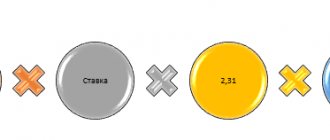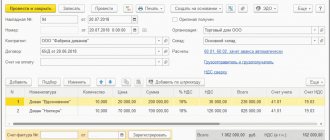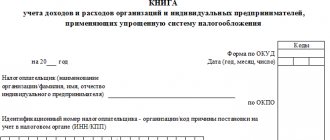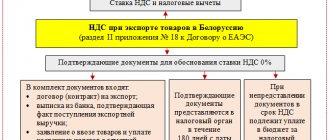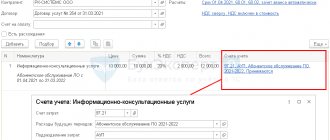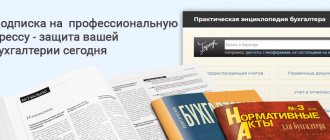Who is exempt from paying VAT under Art. 145 Tax Code of the Russian Federation
Let's start with the fact that the VAT exemption obtained in accordance with Art.
145 of the Tax Code of the Russian Federation, applies to all activities of the taxpayer, and not to certain types of business or operations. At the same time, it does not exempt from payment of import and agency VAT (clause 3 of Article 145, Article 161 of the Tax Code of the Russian Federation). Both organizations and individual entrepreneurs can receive VAT exemption. The main thing is that the following condition is met: the amount of revenue from the sale of goods and equipment (excluding VAT) for the 3 previous consecutive calendar months should not exceed 2 million rubles. (clause 1 of article 145 of the Tax Code of the Russian Federation).
NOTE! The calculation must include revenue only from transactions subject to VAT (letter of the Federal Tax Service of Russia dated May 12, 2014 No. GD-4-3/ [email protected] , Resolution of the Presidium of the Supreme Arbitration Court of the Russian Federation dated November 27, 2012 No. 10252/12).
Not entitled to receive exemption from VAT (clause 2 of Article 145 of the Tax Code of the Russian Federation):
- persons selling excisable goods;
- organizations that are exempt from VAT as participants in the Skolkovo project.
Newly created organizations and newly registered individual entrepreneurs can also apply for exemption during the first three months of work, when they do not yet have 3 months of revenue (see letter of the Ministry of Finance dated August 23, 2019 No. 03-07-14/64961).
What document confirms the use of the simplified tax system?
Let us remind you that when switching to the simplified tax system, an organization or individual entrepreneur must submit to its tax office a Notification of the transition to a simplified taxation system (form No. 26.2-1, approved by Order of the Federal Tax Service dated November 2, 2012 No. ММВ-7-3 / [email protected] ) . In general, this must be done no later than December 31 of the previous year (clause 1 of Article 346.13 of the Tax Code of the Russian Federation) in order to become a payer of the simplified tax system from January 1 of the new year.
However, the tax inspectorate does not have the obligation to confirm that the organization (IP) has switched to the simplified tax system; the Federal Tax Service does not send in response either a permit or a notification about the application of the simplified tax system.
However, by order of the Federal Tax Service of Russia dated November 2, 2012 No. ММВ-7-3/ [email protected] Form No. 26.2-7 – Information Letter was approved. With this letter, the inspectorate can confirm that the organization or individual entrepreneur has submitted a Notification of the transition to the simplified tax system (in the form it is called an application), and also submitted declarations under the simplified tax system. Information about submitted declarations may not be available if the deadline for their submission has not yet arrived at the time of preparation of the information letter.
How to obtain VAT exemption in 2020-2021
Start applying VAT exemption under Art. 145 of the Tax Code of the Russian Federation is possible from the first day of any month during the calendar year. In this case, you must inform your Federal Tax Service about the application of the exemption no later than the 20th day of the month from which you began to use the exemption (clause 3 of Article 145 of the Tax Code of the Russian Federation).
Read about the consequences of missing the deadline for submitting a notification in the article Do not delay in submitting documents for exemption under Art. 145 Tax Code of the Russian Federation .
The form of the message is a notification about the use of the right to exemption from the taxpayer’s obligations related to the calculation and payment of VAT. The forms were approved separately for Unified Agricultural Tax payers and for all others (Order of the Ministry of Finance dated December 26, 2018 No. 286n). for agricultural producers can be found here. Find the general notification form here.
Read about the application of the exemption under the Unified Agricultural Tax from 2022 in this article.
Along with the notification, you must submit (paragraph 2, paragraph 3, paragraph 6, article 145 of the Tax Code of the Russian Federation):
- extract from the balance sheet (for legal entities);
- an extract from the books of income and expenses and business transactions (for individual entrepreneurs);
- extract from the sales book.
Statements are drawn up in any form, but in such a way that the inspectorate can clearly see the amount of revenue for the previous 3 months.
The recommendations of ConsultantPlus experts will help you draw up an extract from the sales book. Get trial access to the system for free and go to the Ready-made solution.
Conditions for VAT exemption
To obtain the right to VAT exemption, you must submit the appropriate document to the tax service. The application deadline is no later than the 20th day of the month from which the company began to exercise the right to exemption from value added tax. This condition is reflected in Article 145 of the Tax Code.
You can receive a benefit for up to 12 months only by paying the domestic tariff. After a year, the person needs to confirm that all the rules have been met; it is necessary to draw up an application for VAT exemption and renewal of the right.
The application is submitted using the approved form. In addition to this document, you must provide other documents. These include an extract from the accounts. balance sheet, where revenue is indicated, an extract from the sales book, accounting for income and expenses. The payer has the right to personally come to the inspection with a package of documents, but the papers can also be sent by registered mail with notification. You definitely need to make an inventory.
The notification must indicate the name of the Federal Tax Service, information about the company or individual entrepreneur, and details. Location information and contact details are required. You must indicate when the opportunity began to apply, what the revenue was for 90 days, and how many supporting documents are attached.
The tariff waiver under Article 145 applies to all activities of a person and not to certain procedures. Firms and individual entrepreneurs have the right to receive this opportunity if they meet the conditions for the highest revenue limit. The calculation includes revenue from transactions that are subject to a tariff. Persons who sell goods with excise tax, as well as persons who have the opportunity not to pay the tariff, do not have the opportunity to issue a refusal.
You can start using the opportunity under this article from the first day of any month. It is important to inform the Federal Tax Service that the right is being used. A payer who has the opportunity to refuse payments is not required to pay VAT, except in situations where he issues an SF with the allocation of tax. You do not need to file a return for this tax.
The payer who received the benefit should not refuse to issue an invoice, which is marked “Without VAT”. You must keep a sales book and cannot claim a deduction. In some cases, loss of the right is possible - if the permitted revenue limit is exceeded or when selling excisable products.
Refusal to pay a tariff in accordance with Article 149 of the Tax Code is used in relation to some procedures. These include the sale of a number of medical products or services, shares in the authorized capital, banking operations, loans, etc.
It is not necessary to specifically formalize the right to non-payment or to draw up a notice of its use. It is necessary that all the conditions reflected in Article 149 are met. It is possible to refuse to use the benefit. To use it, you need to submit a corresponding application to the tax authorities. The waiver can be issued for a period of at least 1 year.
How to apply the VAT exemption under Art. 145 Tax Code of the Russian Federation
The application of VAT exemption is of a notification nature, so permission from the inspectorate is not required.
Also, a VAT payer exempt from duties is not obliged to:
- calculate and pay VAT, except in cases where he issues an invoice with an allocated tax (clause 5 of Article 173 of the Tax Code of the Russian Federation, letter of the Ministry of Finance of Russia dated May 26, 2015 No. 03-07-14/30264);
- submit a VAT return (letter of the Federal Tax Service of Russia dated April 29, 2013 No. ED-4-3/ [email protected] );
- keep a purchase book (letter of the Federal Tax Service of Russia dated April 29, 2013 No. ED-4-3 / [email protected] ).
IMPORTANT! Once you start using this VAT exemption, you will not be able to refuse it within 12 calendar months (clause 4 of Article 145 of the Tax Code of the Russian Federation), after which you must submit to the Federal Tax Service:
- documents confirming that during the exemption period your revenue for every 3 consecutive calendar months did not exceed 2 million rubles;
- notification of the extension of the VAT exemption for the next 12 calendar months or of its refusal.
Taxpayer exempt from VAT:
- Is not exempt from issuing an invoice to the buyer. In invoices, it does not highlight VAT, but makes the inscription: “Without VAT” (Clause 5 of Article 168 of the Tax Code of the Russian Federation).
- Must keep a sales book (subclause 1, clause 3, article 169 of the Tax Code of the Russian Federation, clause 1 of the Rules for maintaining a sales book used in calculations of value added tax, approved by Decree of the Government of the Russian Federation of December 26, 2011 No. 1137.
- Does not have the right to deduct VAT (subclause 1, clause 2, article 171, subclause 3, clause 1, article 170 of the Tax Code of the Russian Federation).
- Includes VAT presented by suppliers in the cost of goods, works, services (subclause 3, clause 1, article 170 of the Tax Code of the Russian Federation).
- Obliged to restore deductible VAT from the cost of goods (work, services), fixed assets, intangible assets that will be used during the exemption period. Restoration must be made in the last tax period before the start of using the exemption, if the tax exemption begins from the first month of the quarter or, if the exemption is applied from the second or third month of the quarter, then in the same quarter when the application of the exemption began (clause 8 of Art. 145 of the Tax Code of the Russian Federation).
See " Sample Waiver Notice " .
At the same time, in some circumstances the right to exemption from VAT can be lost, namely in cases where (clause 5 of Article 145 of the Tax Code of the Russian Federation):
- revenue for any 3 months will exceed 2 million rubles;
- The sale of excisable goods will begin.
See also “How to properly exempt from VAT.”
How to fill out a notice for VAT exemption in 2022
There are no special instructions for filling out the notification. You need to fill out the header of the form, which indicates:
- name of the tax authority where the notification is submitted;
- Full name of the head;
- TIN and checkpoint of the organization;
- address and telephone number of the organization.
At the top, in a special field, you will need to indicate the name of the organization or full name of the taxpayer (if it is an individual entrepreneur).
Next, you need to write the date from which the application of the right to exemption begins in the format DD.MM.YY.
In paragraph one, you need to indicate the total amount of revenue for the last three calendar months, and then break it down monthly. In the second paragraph, you will need to clarify how many sheets of supporting documents are presented.
Next is the signature of the manager, chief accountant and date of completion.
Sample notice of VAT waiver 2022: sample
You can submit documents for VAT exemption in person to the Federal Tax Service. You can also send them by mail with a description of the attachment. Operational accounting services also support the notification function, so you can send a notification electronically.
In the article, we examined the conditions for applying the right to exemption from VAT, and also learned how to fill out and submit a notification. Please remember that you cannot voluntarily waive this right within 12 months. Therefore, weigh the pros and cons before making a decision.
Who is exempt from paying VAT under Art. 149 Tax Code of the Russian Federation
Exemption from VAT under Art. 149 of the Tax Code of the Russian Federation is applied not to the activities of an organization or individual entrepreneur as a whole, but to individual operations. This article contains a complete and closed list of such operations. For example, these include:
- sale of some domestic and foreign medical goods according to the list approved by the Government of the Russian Federation (subclause 1, clause 2, article 149 of the Tax Code of the Russian Federation);
- sale of medical services (subclause 2, clause 2, article 149 of the Tax Code of the Russian Federation);
- sale of shares in the authorized (share) capital of organizations, securities (subclause 12, clause 2, article 149 of the Tax Code of the Russian Federation);
- implementation of exclusive rights to inventions, utility models, industrial designs, computer programs, databases, topologies of integrated circuits, production secrets (know-how), as well as rights to use the specified results of intellectual activity on the basis of a license agreement (subclause 26 clause 2, Article 149 of the Tax Code of the Russian Federation) ( see also “ Is it legal to sell software without VAT? ” );
- banking operations (subclause 3, clause 3, article 149 of the Tax Code of the Russian Federation);
- loan transactions, including interest (subclause 15, clause 3, article 149 of the Tax Code of the Russian Federation), etc.
See “ What goods are not subject to VAT enshrined in the Tax Code? " and " Transactions not subject to VAT: types and features " .
In addition to the actual list of non-taxable operations, Art. 149 of the Tax Code of the Russian Federation also contains conditions for the application of this VAT exemption for some of them, for example, the presence of a license or a set of necessary supporting documents.
We emphasize that there is no need to obtain this VAT exemption in a special way or notify the tax authorities about its application. It is enough that the established Art. 149 of the Tax Code of the Russian Federation conditions.
For operations specified in clause 3 of Art. 149 of the Tax Code of the Russian Federation, the code provides for the possibility of refusing to apply the VAT exemption (clause 5 of Article 149 of the Tax Code of the Russian Federation). Such a refusal can be beneficial, as it will allow the payer to apply VAT deductions and not maintain separate accounting. To take advantage of this opportunity, no later than the first day of the tax period from which you intend to refuse the VAT exemption or suspend it, you need to submit a corresponding application to the Federal Tax Service.
You can refuse VAT exemption in relation to:
- all operations from clause 3 of Art. 149 Tax Code of the Russian Federation;
- individual operations from clause 3 of Art. 149 Tax Code of the Russian Federation;
- one of the operations of clause 3 of Art. 149 of the Tax Code of the Russian Federation.
Refusal is possible for a period of at least 1 year (clause 5 of Article 149 of the Tax Code of the Russian Federation).
Read more in the article: “How to refuse VAT exemption.”
With a sample application for refusal of VAT exemption under Art. 149 of the Tax Code of the Russian Federation can be found in the material “Sample application for refusal of VAT exemption”.
Exemption from fulfillment of obligations for calculation and payment of VAT on other grounds
VAT and special tax regimes
It is possible not to pay VAT when:
- applies: simplified tax system (clause 2 of article 346.11 of the Tax Code of the Russian Federation);
- PSN (clause 11 of article 346.43 of the Tax Code of the Russian Federation);
- UTII (in terms of activities on UTII) (clause 4 of Article 346.26 of the Tax Code of the Russian Federation);
- does not import imported goods into the Russian Federation;
VAT benefit under Art. 149 Tax Code of the Russian Federation
Notifying the tax office about non-payment of VAT on the basis of Art. 149 of the Tax Code of the Russian Federation is not provided for. The benefit applies to certain types of operations on a closed list.
If transactions are carried out both taxable and not subject to VAT, it is necessary to keep separate records (clause 4 of article 149 of the Tax Code of the Russian Federation). More details Transition to separate VAT accounting (from release 3.0.73)
A few more important features:
- if the activity for which the benefit is provided is subject to licensing, you can not pay VAT only if you have a license (clause 6 of Article 149 of the Tax Code of the Russian Federation);
- the benefit cannot be applied if the intermediary operates in the interests of a third party (clause 7 of article 149 of the Tax Code of the Russian Federation);
- from benefits in terms of operations listed in clause 3 of Art. 149 of the Tax Code of the Russian Federation, you can refuse forever or temporarily, but for a period of at least one year.
Refusal of benefits for transactions, clause 3 of Art. 149 of the Tax Code of the Russian Federation is possible both for all of them at once, and for their individual types - one or several.
The refusal must be valid for all ongoing operations selected from clause 3 of Art. 149 of the Tax Code of the Russian Federation, regardless of the buyer or the terms of the transaction (clause 5 of Article 149 of the Tax Code of the Russian Federation).
You can refuse the benefit no later than the 1st day of the quarter from which you no longer intend to use it and decide to suspend it. To do this, send the tax authorities a corresponding application (clause 5 of Article 149 of the Tax Code of the Russian Federation). The application form is not regulated. Compose it in free form, indicating:
- transactions for which it was decided not to use the benefit;
- the period for refusing the benefit (at least a year) and the quarter from which you will not apply it.
More details VAT on warranty repairs: waiver of benefit is possible
See also:
- [07/21/2020 entry] VAT return for the 2nd quarter of 2022 in 1C
- Restoration of VAT upon transition to UTII
- VAT restoration during reorganization
- Reinstatement of VAT when purchasing goods (works, services) through subsidies
- Reinstatement of VAT when writing off inventory items as a result of a shortage
Did the article help?
Get another secret bonus and full access to the BukhExpert8 help system for 14 days free of charge
Related publications
- Tax maneuver in the IT sector: exemption from VAT and type of contract From 01/01/2021, changes to paragraphs came into force. 26 p....
- Skolkovo. Exemption from VAT You do not have access to view To gain access: Complete a commercial...
- Exemption of catering services from VAT from 2022 - the Ministry of Finance recalled the conditions. From 2022, catering services are exempt from VAT. However…
- Skolkovo. Exemption from property tax You do not have access to view To gain access: Complete a commercial…
Results
So, let's summarize. The Tax Code of the Russian Federation provides for 2 types of VAT exemption:
- Exemption from VAT payer obligations (Article 145 of the Tax Code of the Russian Federation).
- Exemption from VAT for certain transactions (Article 149 of the Tax Code of the Russian Federation).
The first applies to all activities of a business entity and requires notification to the tax authority. The second applies only to specific types of transactions and is applied without any notification to the tax authorities. However, the use of each of them requires compliance with certain conditions.
Sources:
- Tax Code of the Russian Federation
- Letter of the Federal Tax Service of Russia dated May 12, 2014 N GD-4-3/ [email protected]
- Order of the Ministry of Finance of Russia dated December 26, 2018 N 286n
- Decree of the Government of the Russian Federation of December 26, 2011 N 1137
You can find more complete information on the topic in ConsultantPlus. Free trial access to the system for 2 days.
Sample form for notification of VAT exemption
According to the Tax Code, in order to apply for a tariff benefit, you must submit an application in the appropriate form, which is filled out correctly. A sample of this document is given in the order of the Ministry of Finance dated December 26, 2018. In addition to the example of filling out the inspection, you need to provide an extract from the sales book and accounting. balance.
There are no forms for extracts from the sales book and balance sheet; they can be compiled in any form. In this case, the extract from the sales book should display information about the amounts of transactions for the last months. The application must correctly indicate information about the name of the Federal Tax Service, the taxpayer, the date of using the opportunity not to pay the tariff, and revenue.
